Bloating is a common early symptom of menstruation that many women experience. It may feel like you’ve gained weight or like your abdomen or other parts of your body are tight or even swollen. In worse circumstances, bloating can even make it difficult for you to squeeze in your usual exercise. Bloating generally occurs well before your period starts and will go away once you’ve been menstruating for a few days.
There are tons of reasons why your belly might be bloating — but one of the main ones is definitely getting your period. As your estrogen levels rise, your body retains more water. Your estrogen levels are high in the days before your period, hence the bloating. In contrast, progesterone is a diuretic, which helps you get rid of water in your body. When this hormone is low in your body, you’re also more likely to be bloated. Progesterone dips right before you get your period. So basically, the few days before your period is a confluence of water-retaining factors — first you get high estrogen in the days before your period, and then right before your period, your progesterone drops significantly.
While bloating isn’t medically alarming, it is real. People can gain a couple pounds of water weight before their periods. The bad news is that there isn’t much you can do about the natural hormones that are the culprits of period bloat (without getting rid of your menstrual cycle). However, there are some things you can do to limit other factors that contribute to bloating. Read on to find out more.
Cut Down on Foods That Can Cause Gas
The best way to minimize bloat is to not eat foods that give you gas. These foods are difficult for your body to digest and therefore take longer, which results in more gas — and more bloat. Gassy foods include certain veggies (like broccoli, cabbage, cauliflower, and Brussels sprouts), beans, lentils, cow’s milk, potatoes, and corn.
Minimize Carbs
Ugh, why is it always carbs? In this case, it’s because carbs actually retain water, so if you cut down on white bread, white rice, and anything made with flour (at least during the time you’re PMS-ing), your bloat will likely diminish.
Try a Vegan Diet
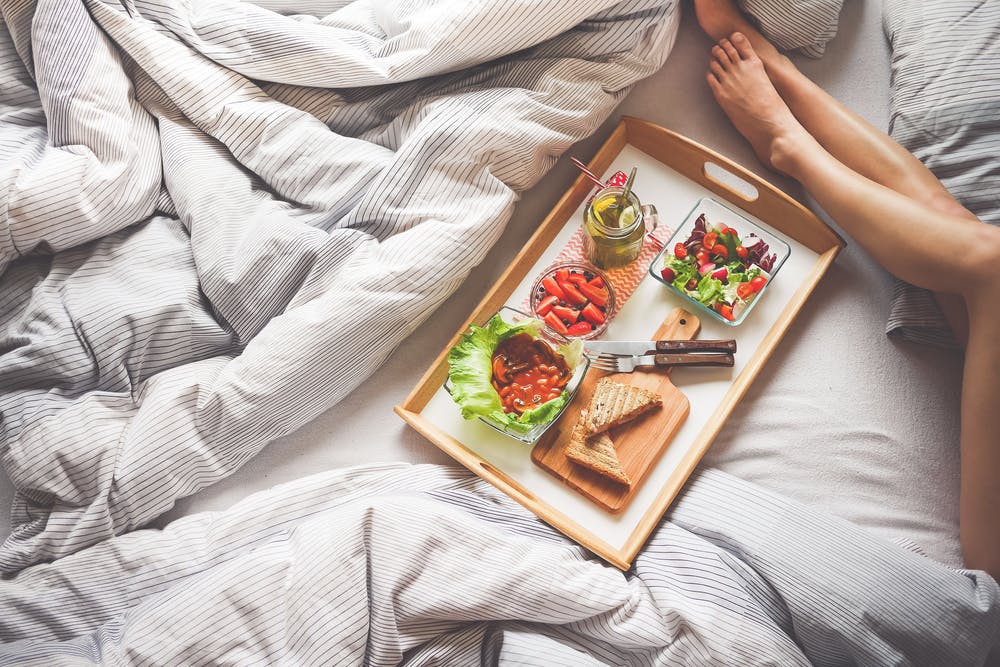
Previous studies found that a low-fat, vegan diet significantly reduced pain and PMS for many women. Some people also report that a vegan diet can help make bloating virtually non-existent, and makes their cramps milder.
Cut Down on Salt
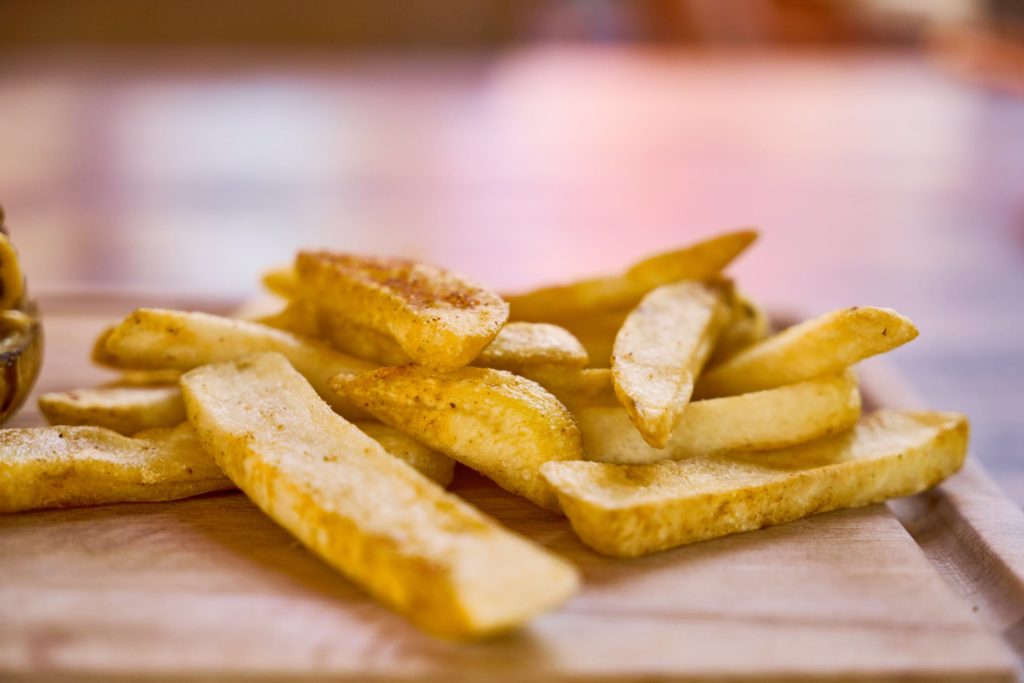
High levels of salt in your body also contribute to bloating. This is because when you eat lots of salt, your body reacts by retaining more water so you don’t get dehydrated. Minimizing your salt intake in your pre-period meals can help cut down on period bloat.
Minimize Foods That Can Cause Acid Reflux
Some foods that cause acid reflux can also exacerbate bloating. When you have acid reflux, you often swallow a lot of air to calm down your throat and stomach, causing bloat because there’s just more air in your stomach. If you’re prone to acid reflux, steer clear of foods with lots of pepper, chilis, hot sauce, mustard, vinegar, tomato sauce, cloves, and ketchup — these are likely to cause some reflux, and in turn bloating.
Eat Foods High in Potassium
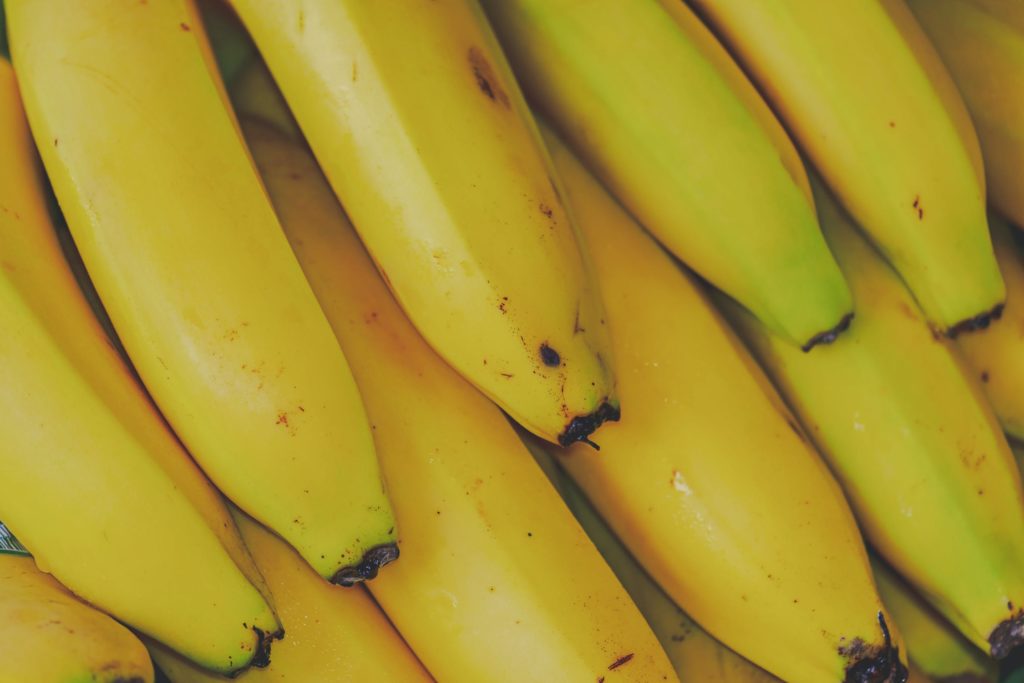
Finally, something you can eat! Potassium helps your body regulate fluids, so eating foods with high potassium such as bananas, tomatoes, sweet potato, asparagus, and cantaloupe will help you with your belly bloating.
Drink Enough Water
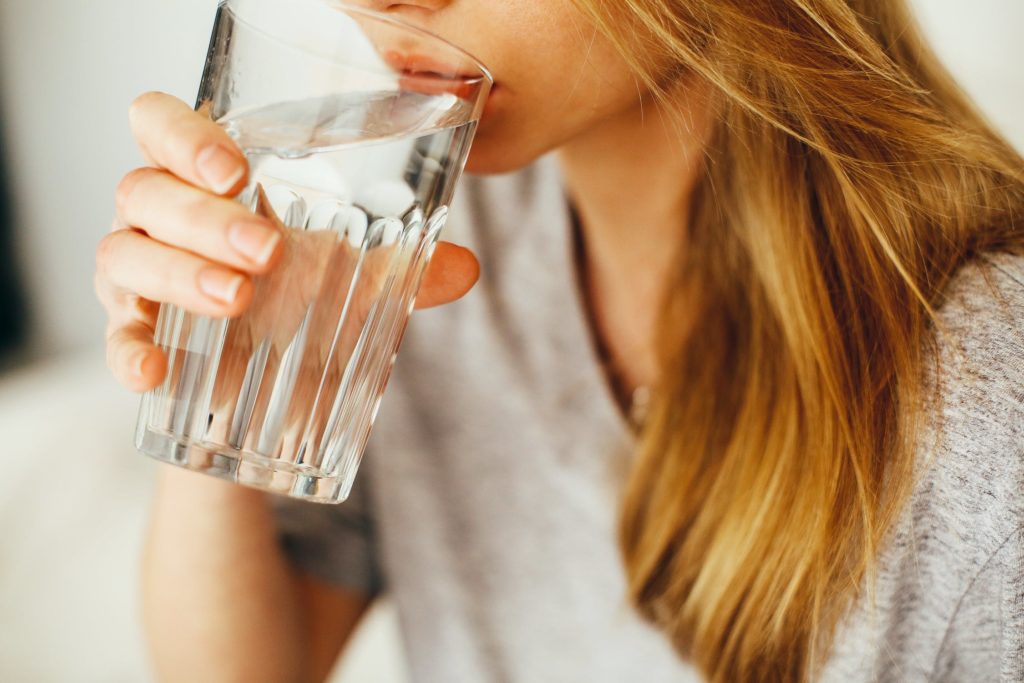
This one may seem counterintuitive, but it’s important to drink water to minimize bloat. If you don’t have enough water in your system, it can cause your body to panic and hold onto the water in your system, instead of letting flow through like normal.
Make Sure to Exercise
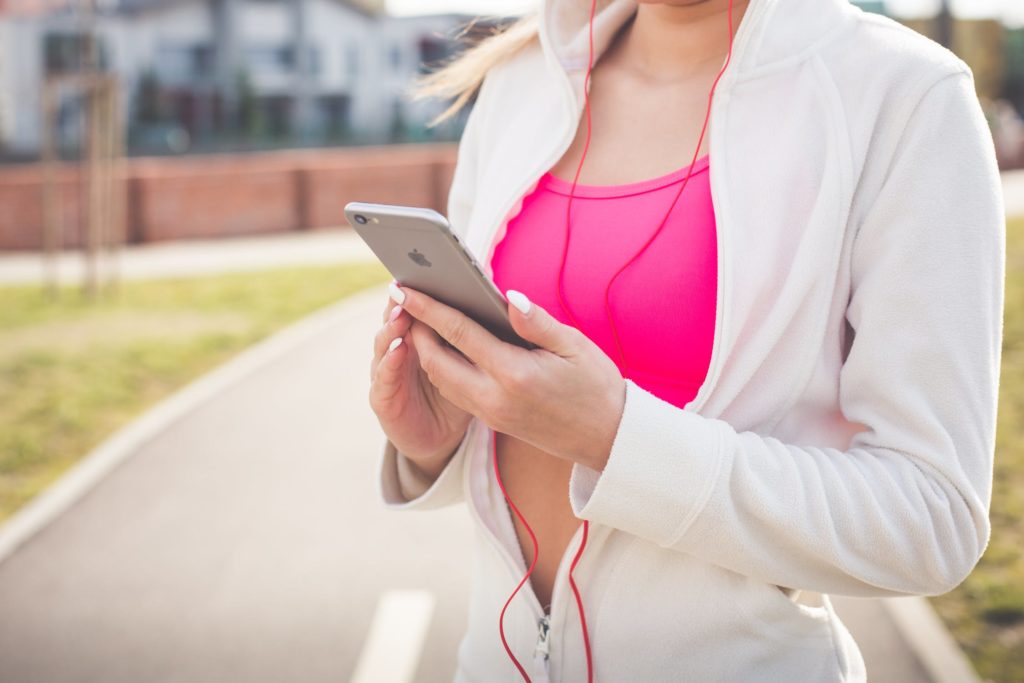
Exercise is shown to help with all PMS symptoms, and bloating is no exception. Working out gets your digestive system going and increases your blood circulation — both of which can help your bloating symptoms. One word of caution though: extreme workouts that can cause inflammation can make bloating worse, so take it a bit easier the week before your period and save that spin class for later.
Cut Down on Sugar, Alcohol & Caffeine
Why is it always these three? It feels like a conspiracy sometimes, like we can’t have nice things. But unfortunately, sugar, alcohol, and caffeine can increase bloat. Coffee is a particular culprit, since it dehydrates you, which causes your body to retain water to protect itself.
Cut Out Carbonated Beverages
Remember how acid reflux can contribute to bloat because you’re swallowing more air? The same is true when you drink bubbly beverages. So, steer clear of carbonated drinks — particularly sugary soda.
Eat Smaller Amounts at a Time
No matter what you eat, if you want to lower your bloating, you should eat less of it — not total, just at each sitting. If you eat a bunch at a time, your body takes longer to digest, and your undigested food starts to ferment in your body, causing gas. Try eating more frequent, smaller meals, so that you get the same amount of nourishment — without the bloating.
Take an Anti-inflammatory
Inflammation can increase bloating. If you are a person who experiences period bloat and you think it’s about that time of the month, you can take an over-the-counter anti-inflammatory like ibuprofen. It will minimize your inflammation, and therefore your bloating.
Get More Sleep
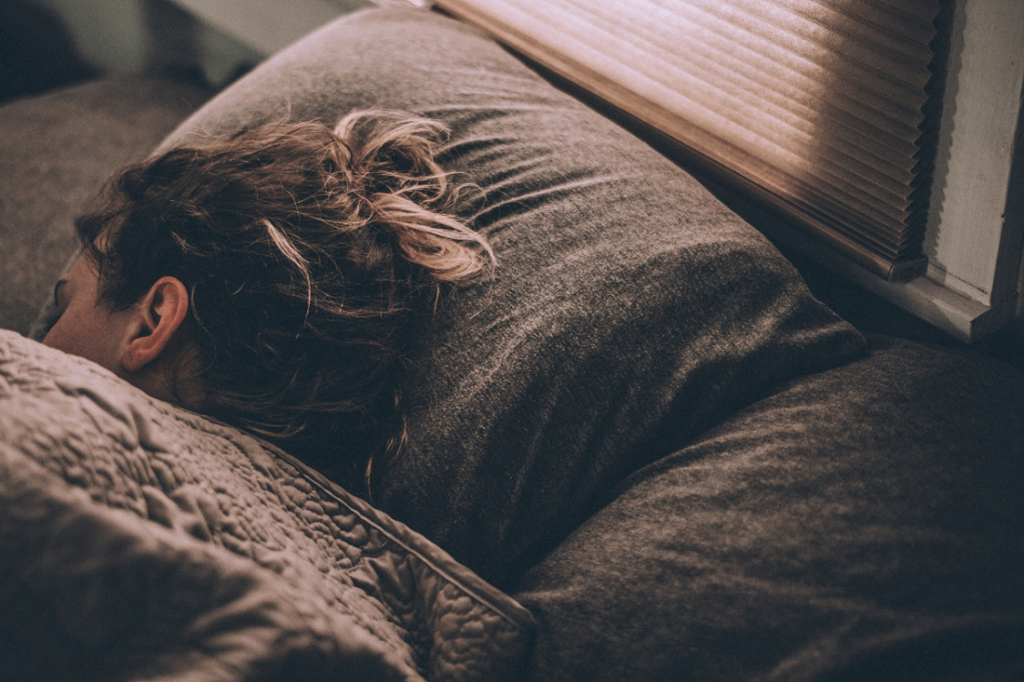
Sleep is important for lots of bodily functioning, including dealing with bloating. It’s during the time when we’re asleep that our bodies repair themselves, and that includes moving any excess fluid from your belly toward removal. If you don’t give your body the time it needs for this critical maintenance, you could be leaving extra water in your tummy.
Finally, if you’re still experiencing discomfort after following these suggestions, talk to your doctor. She may have some more tips for you.
Comments
0 comments


Reading your article helped me a lot and I agree with you. But I still have some doubts, can you clarify for me? I’ll keep an eye out for your answers.
The point of view of your article has taught me a lot, and I already know how to improve the paper on gate.oi, thank you. https://www.gate.io/tr/signup/XwNAU